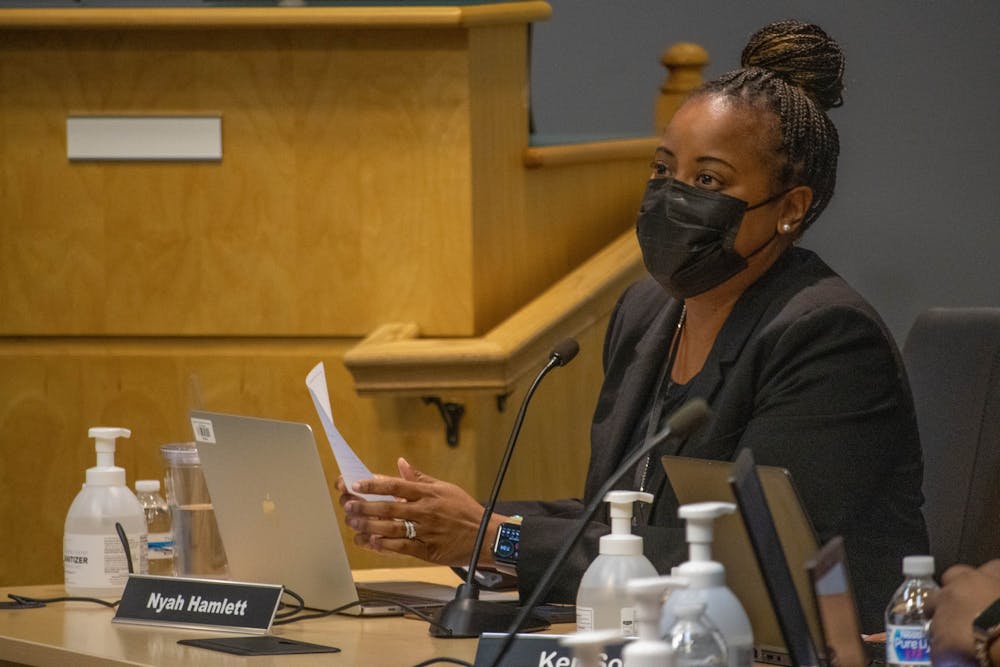In late September, Chapel Hill-Carrboro City Schools Superintendent Nyah Hamlett presented a speech as the plenary speaker at Duke University's annual Color of Education Summit.The Daily Tar Heel's Caroline Horne spoke with Hamlett about her experience at the summit and the content of her speech.
This interview has been edited for brevity and clarity.
The Daily Tar Heel: Tell me about the Color of Education Summit and how it is an important part of educational equity in North Carolina.
Nyah Hamlett: It is one of those summits that gives space for educators, policy leaders and thought leaders the opportunity to focus on eradicating racial or other inequities that exist in North Carolina schools. The reason I say racial or other is because there are other student groups that are not necessarily racially diverse, but are student groups impacted by inequities based on how school systems or public education systems are set up. For example, in my school district, we focus on our students with disabilities and our multilingual learners. We recognize that there are inequities that are part of systemic equity issues across the country, not just in North Carolina. The summit is just a great partnership between a number of organizations that have an impact and an interest at the policy level, and it's a great opportunity for people to ideate and co-create spaces for equity in education.
DTH: When you say that equity has been a challenge for a lot of schools in North Carolina, what exactly do you mean by this and what were some of the practices that you wanted to put forth to try to help with that issue?
NH: There's a number of challenges when it comes to equity. Sometimes the word equity itself is weaponized, not just in North Carolina, but across the country. There are what people have called “culture wars,” and there's legislation and differing views about how or whether or not educators should address inequities in public education. It is one of those things where focus should be on what is considered the most important work, meaning providing a high quality, affirming education for every single student under our care, regardless of their background, neighborhood, family income, race or culture. It was important to me to share best practices and this message of “don't give up on kids.” It's not about all of these adult issues or differing opinions — it's about making sure that we stay steadfast in giving students what they deserve and need, and that's a high quality education.
DTH: What was the main message of your speech and what were some of your main points?
NH: The title of my speech was “Don't Flinch,” and it was about authentic and connected leadership strategies. Some of the key points were things like staying steadfast in this work. The summit leaders asked that I connect the past to the present, so I went down a history of things that were occurring from an educational standpoint during the Civil Rights Movement to today. Then, I shifted into talking about what it means to be an authentic and connected leader in this education space and being unflinching in our pursuit of not just educational equity, but providing high quality education for all children.
DTH: Tell us about your overall experience at the summit. What were some interesting things that you learned or saw that you would like to bring back to CHCCS?




